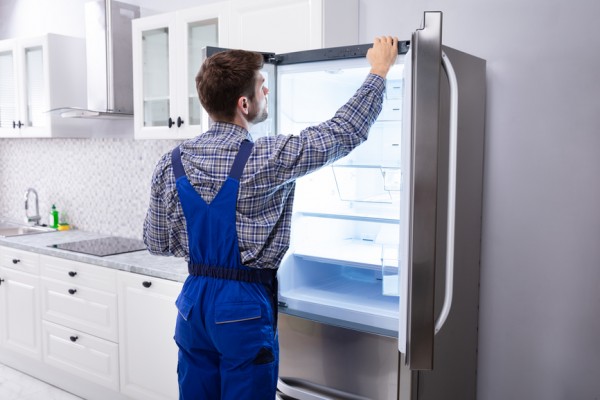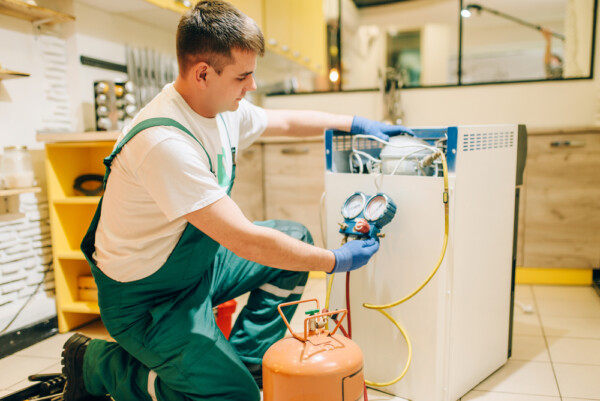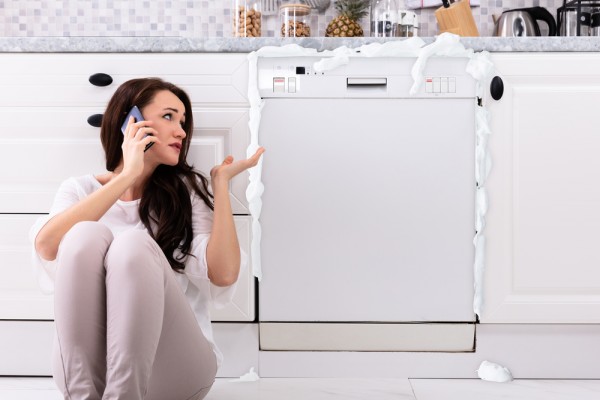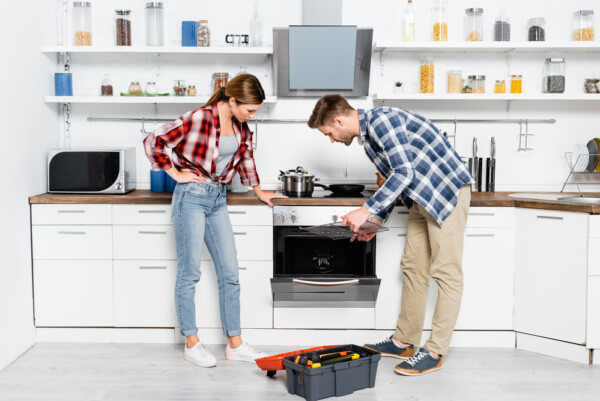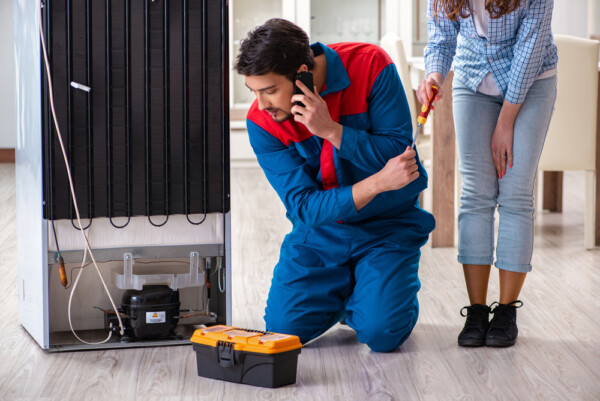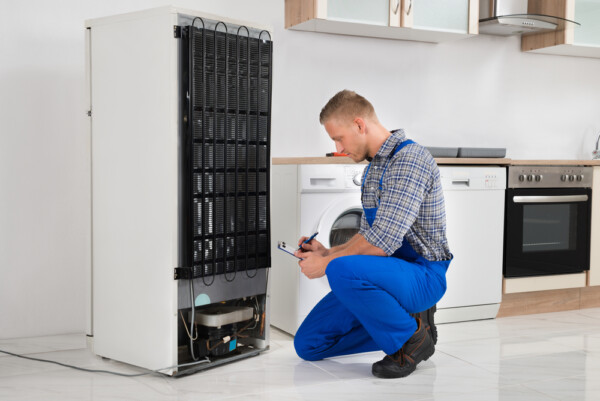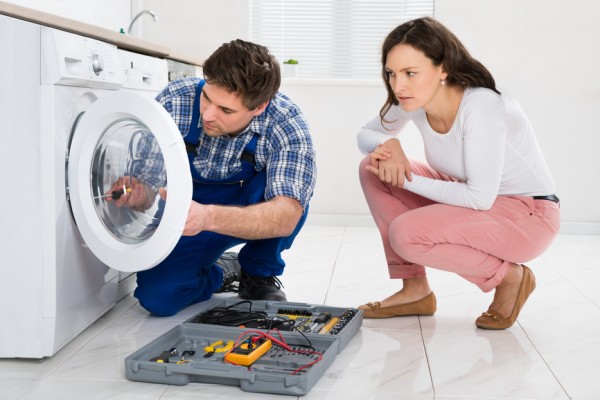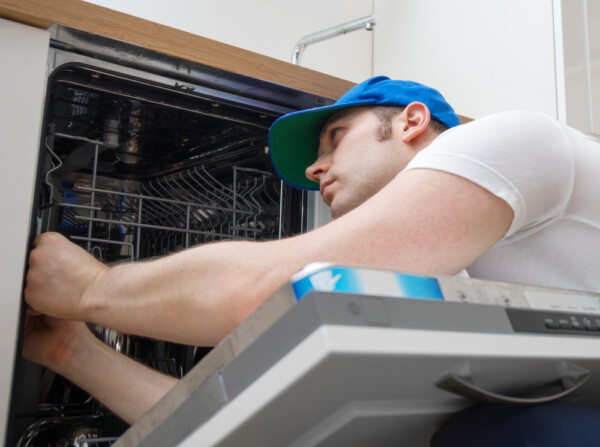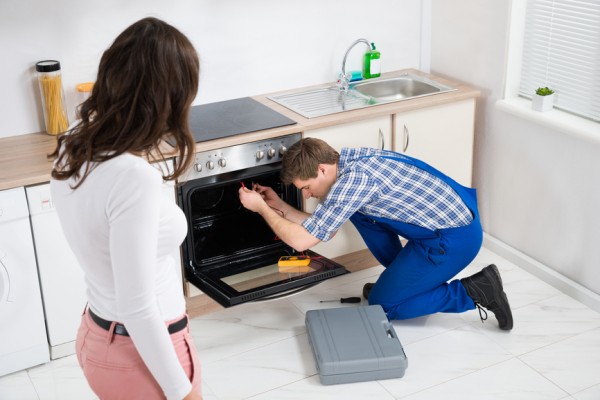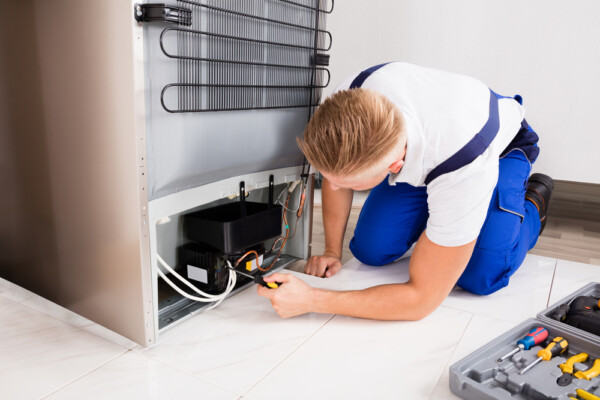My Freezer Is Making A Hissing Sound And Other Strange Noises?
This article tells the reader that if they hear a loud noise coming from their freezer, it may be caused by a malfunctioning evaporator fan motor. In addition to an annoying noise, if the evaporator fan motor is not functioning, your refrigerator may not be as cool as you want, and your ice may freeze slowly. If you can hear a popping sound coming from your fridge much more regularly, hear indicates a problem that needs to be fixed.
A malfunctioning evaporator fan motor is one of the most common causes of this issue. If your refrigerator evaporator is blocked, the cooling system won’t work properly and it will produce a loud humming sound which can be quite loud and annoying. A zero refrigerator freezer can also cause this sound because it blocks the evaporator condenser fan from running smoothly. This usually returns a loud sub that makes noise when you open the door to get something out of your fridge.
My freezer is making a hissing sound and other strange noises, which could be a sign that its evaporator fan is malfunctioning. The evaporator fan is located inside the freezer and it’s responsible for helping to freeze your ice and keep your refrigerator cold. If the evaporator fan is not functioning properly, it could be causing the annoying noise. You can try to push the light switch in the back of your freezer and see if that helps or turns off the noise. If that doesn’t work, it could be coming from a loud motor inside the freezer.
Your appliance will have a timer, condenser fan, and an evaporator fan cover that you can remove to access the freezer compartment. If the noise seems to emanate from this area, it could be your compressor. This is the most common culprit of loud noises coming from inside your freezer or fridge. It usually makes a squeak or rattle sound when it turns on and off at regular intervals as it circulates air. If this is the case, it’s an indication that your defrost timer or compressor might be failing and needs to be replaced.
Popping noises can also be caused by the fan motor, which may need to be serviced or replaced. If your fridge is making a hissing sound, it could indicate a refrigerant leak and the system should be inspected by a qualified technician. Additionally, other strange noises may indicate that some of the components are faulty and need to be inspected.
If you hear a loud popping noise, it may indicate something is wrong with the compressor. This can be a good sign that something is blocking the defrosted water from entering the evaporator fan motor. If your fridge is vibrating a lot, or you can hear a rattling noise coming from it, this could be an indication of a problem. It could also be caused by something on the kitchen floor vibrating against the fridge and making an annoying rattling noise. If you hear a constant popping sound coming from your freezer, this is also cause for concern as it likely indicates something is wrong with one of its components and should be looked into immediately.
One common cause of such noises is the refrigerators defrost cycle. During this process, the refrigerators coils and drain pan will periodically activate and deactivate, which can produce a hissing sound or gurgling noise. Additionally, you may hear liquid sounds as the drip pan fills with water from melting ice during the defrosting process. If you hear a clunk or moving compressor noise, it likely means that your refrigerator has been running non-stop and may need to be defrosted.
If your frost free fridge freezer is making a hissing sound, it is likely due to the refrigeration system. This could occur due to the compressor trying to make the freezer lot colder than it should be. Other strange noises that you may be hearing include scraping noises, which could be caused by the fan or evap unit in your refrigerator. It’s normal operation for these components to make noise during their auto-defrost cycle.
When your fridge freezer starts making strange noises, it could be the compressor running, or it could be the defrost timer. If you’ve replaced the defrost timer and are still hearing loud and unusual noises, then the issue is most likely with your compressor. Compressors make noises when they are running, but if it’s making a loud noise that doesn’t go away after a few minutes, then there might be an issue with your unit. You can try locating the source of the sound by listening to different areas of your refrigerator for up to an hour per day over a few days.
If you determine that your refrigerator is making a sizzling sound, you may want to consult a handy guide on common noises your refrigerators make. In some cases, the noise could be coming from the defrost heater or water dripping onto it, either of which could be cause for concern. An example of a potential issue would be an overheated compressor motor that has become damaged due to excessive heat.
This can cause a hissing sound, popping noise, and other strange noises. When your refrigerator defrosts, it can cause the plastic containers to expand and contract which can make a popping sound when you open the fridge door. You should move your plates, bowls and other items away from the compressor motor to reduce the risk of it being damaged. If you find that you are hearing a hissing or popping sound coming from your fridge, then you may need to change the temperature settings or replace the compressor motor.
The compressor is the part of your refrigerator that circulates cold air in order to keep food at a safe temperature. If the compressor is failing, it can stop your fridge from performing its functions properly. You may also notice a humming or buzzing noise coming from the unit, which can indicate that the fan motor is working but not efficiently. If you notice a change in these sounds or have them for extended periods of time, then it may require repair service. Aside from hissing and buzzing noises, you may also notice knocking or humming sounds coming from the compressor. This could be an indication that there are wires or tubes that are loose and need to be tightened up. If this is the case, then you should get your refrigerator serviced as soon as possible to make sure that everything is in proper working order.
To schedule freezer repairs in Oklahoma City contact Appliance Repair OKC Services by calling 405-378-4566 or visit our website at https://www.okcappliance.com to also our Google business page at https://cutt.ly/YEnc8qk. Call now!
The post My Freezer Is Making A Hissing Sound And Other Strange Noises? appeared first on Appliance Repair OKC Services | Best Appliance, Washing Machine Repair Company in Oklahoma.

